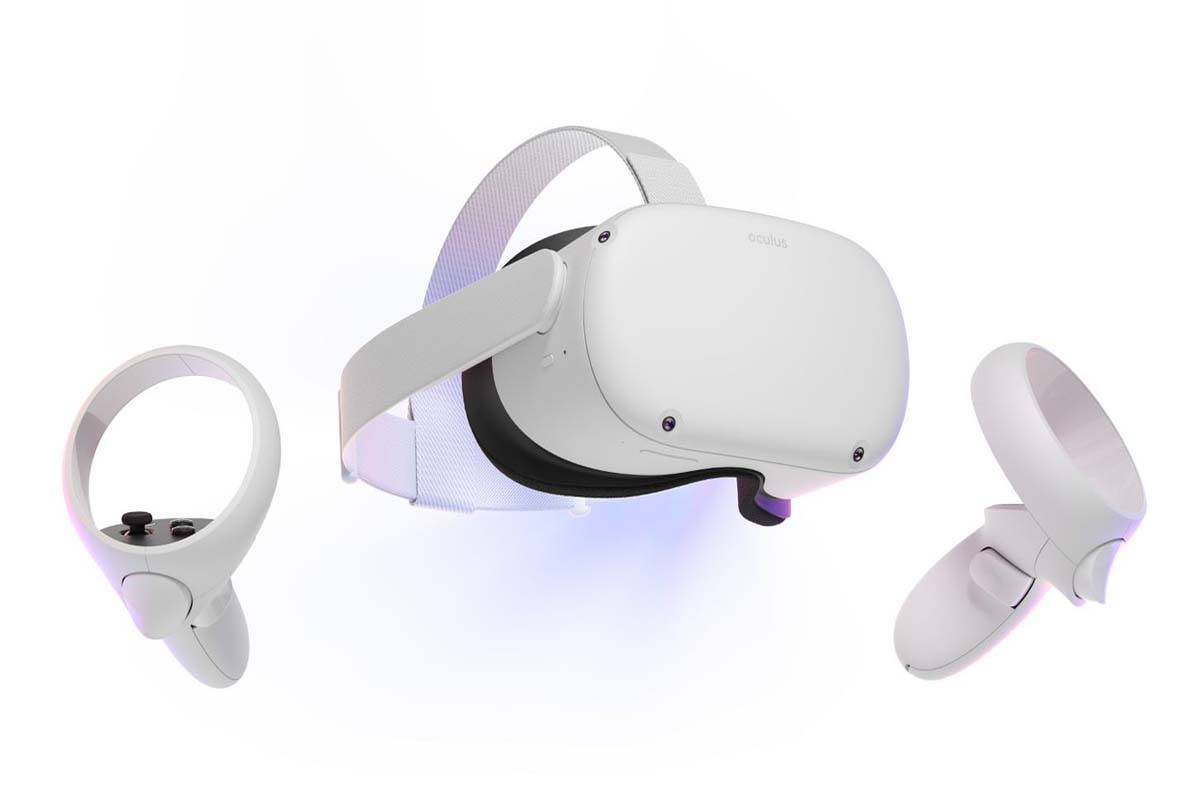Oculus Quest 2 looks to bring VR to the masses
Virtual reality has long been touted as the next big thing in gaming. But it has yet to reach the masses in the same way traditional consoles have. Facebook is hoping to bring VR to the public with the release of Oculus Quest 2.
Oculus Quest 2 is an all-in-one wireless VR platform that doesn’t need to be connected to a gaming console or PC and is priced at $299 for 64 GB of storage and $399 for 128 GB.
“Our goal is for VR to become a self-sustaining ecosystem, where developers are able to build meaningful businesses on the platform while people have an ever-growing supply of amazing games and experiences to try,” Prabhu Parthasarathy, VR Product Manager for Facebook Reality Labs, said. “To help with that, our biggest goal is mainly to get Quest 2 into as many people’s hands as possible.”
VR has faced hurdles in seeing widespread adoption, including costs, lack of content and the ability to adapt to a wide range of sizes. With the Oculus Quest 2, Facebook sought to address all three of those areas.
“Content is what makes a piece of hardware into a magical experience,” Parthasarathy said. “Without question, there should be an experience for everyone when they pick up an Oculus headset.”
But content means little if the cost of admission is too high — a concern that Facebook heard loud and clear.
“In order to be something everyone can enjoy, VR needs to be something everyone can afford,” Parthasarathy said. “We worked hard to deliver Quest 2 at $299, $100 more affordable than the original Quest because this is one big way to put VR within reach for more people.”
Initially, the new price seems to have worked. In a Facebook earnings call, Mark Zuckerberg confirmed that the Oculus Quest 2 was preordered five times as often as the original Quest before its launch in October. There also are a range of accessories aimed at helping people find the most comfortable fit.
“VR needs to be flexible enough to meet the needs of a wide range of people,” Parthasarathy said. “With a product you wear on your head, there’s no one-size-fits-all. That’s why we offer a range of optional, customizable accessories that allow people to find their own fit.”
While the Quest 2 is off to a strong start, it wasn’t without controversy. Most notably, it started requiring new users and people using new devices to log into their Oculus headsets using a Facebook account.
“This will make it easier for people to find and connect with friends, while still keeping a separate VR profile,” Parthasarathy said. “We know that social VR has so much more to offer, and this change will make it possible to integrate many more Facebook-powered social features.”
While this fall has seen the release of multiple new game systems, Facebook is banking on VR and believes it will continue to push boundaries for its users.
“There is so much potential for VR to improve our lives in so many areas, but especially in helping to strengthen human connections despite distance,” Parthasarathy said. “There are many challenges to realizing this vision, from building new technologies like more realistic avatars, to encouraging the development of new apps that facilitate these new experiences. We’re committed to the long haul as we work to realize the full potential of this awesome tech.”
Contact Lukas Eggen at leggen@reviewjournal.com or 702-383-0279. Follow @lukaseggen on Twitter.























